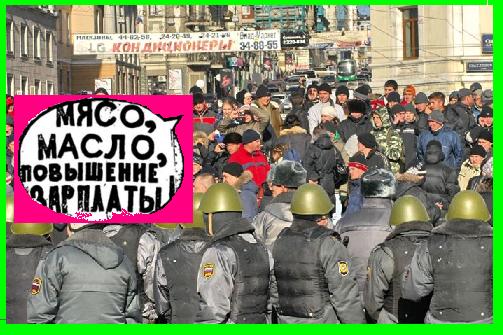
When Tolstoy remarked that “every unhappy family is unhappy in its own way”, he might have been describing the recent anti-government protests in Russia.
On Sunday, I wrote about two ‘riots’: a civil disobedience action against the demolition of homes, and a political rally in defence of the right to organise, organised by the liberal democrats. Around the same time, there was another riot in Kant’s birthplace – Russia’s western enclave of Kaliningrad, against dire living standards.
Three groups of people, protesting three very different grievances in different ways, show the divergent ways in which an anti-Putin/Medvedev movement can be mounted.
The riots can be described as personal (against the seizure of private property in Rechnik), political (against the curtailing of constitutially guaranteed civil liberties) or economic (as in Kaliningrad, where one man explained the reason he was marching: “[United Russia’s Governor] Boos promised us the same standards as the EU. It turned out he was lying”.)
 Which type of opposition is most likely to gain critical mass among people and/or provoce the strongest concessions/repression from the government?
Which type of opposition is most likely to gain critical mass among people and/or provoce the strongest concessions/repression from the government?
The answer depends on your interpretation of how the USSR collapsed:
whether through people power demands for democracy& human rights;
a popular push to respect the rule of law;
or as a result of the disintegration of a social contract that predicated loyalty to the Soviet state on its delivery of steady improvements in living standards.
One thing’s for sure: the latter rallies attract many more people than the political ones, while the government is continuing to favour guns over butter.